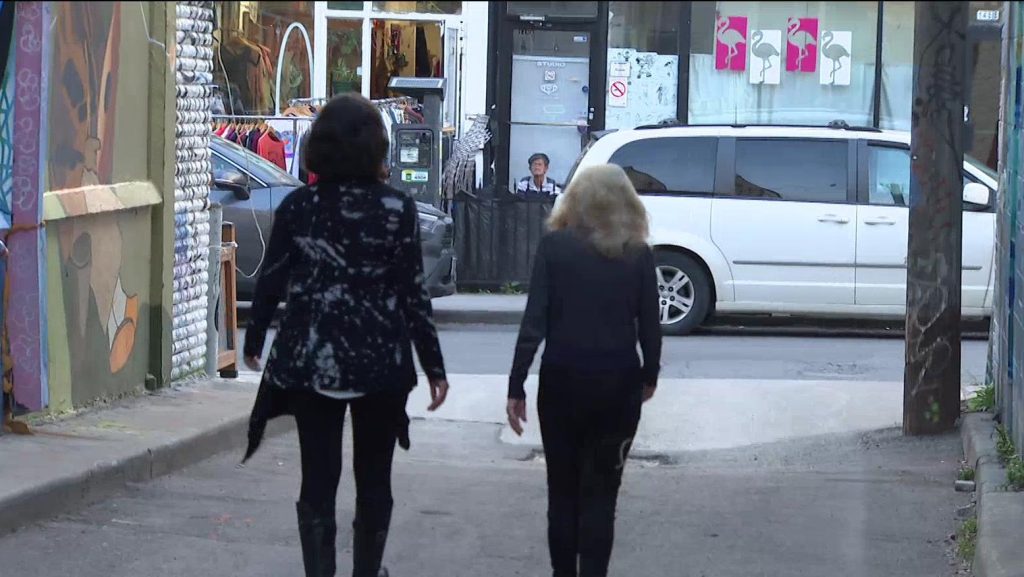Conrad Black Released From Jail On $2 Million Bond
Posted July 21, 2010 7:01 am.
This article is more than 5 years old.
A liberated Conrad Black will leave his Palm Beach, Fla., mansion to appear Friday before the judge who sent him to a federal prison in 2007, travelling to Chicago to have his bail conditions outlined for him after spending two years in the Florida jail.
Judge Amy St. Eve set a US$2 million bond for the onetime Canadian media baron on Wednesday, ordering him to come to Chicago to face the court.
Within hours of the bail hearing, Black was released from prison in Coleman, Fla., leaving the facility from a back exit and evading an assembled media horde.
The Canadian-born Black will now spend his time in the Palm Beach estate that he reportedly sold and now rents from an investment firm.
Jacob Frenkel, a former U.S. federal prosecutor, said the quiet exit from jail isn’t necessarily indicative of a newfound sense of humility from Black, but rather his determination to show maximum deference to the court.
“One thing the judge is concerned about is that Conrad Black not turn this into a circus, because there’s still legal process,” said Frenkel. “We are very likely to see a much more subdued Conrad Black recognizing that he may need to be back in front of Judge St. Eve.”
Black had been behind bars for more than two years after being convicted of defrauding Hollinger Inc. of more than $6 million.
Earlier this week, the 7th Circuit U.S. Court of Appeals granted Black’s motion for bail following a U.S. Supreme Court ruling that narrowed the scope of the “honest services” law that was central to his conviction.
The justices left it up to the lower court to decide whether the conviction should be overturned. That decision has yet to be made.
St. Eve, who presided over Black’s trial and sentenced him to six-and-a-half years, turned down a defence request Wednesday that Black be allowed to travel to Canada, in particular to his home in Toronto. For now, she said, Black must remain in the United States.
She said she needed more information on Black’s financial situation before deciding whether to reconsider her position; Estrada said it was unlikely she’d have a full financial affidavit by Friday.
The judge also banned Black from possessing firearms or any other deadly weapons, and from obtaining a passport.
Black’s lack of ID, in fact, was the subject of discussion throughout the proceedings on Wednesday: he gave up his Canadian citizenship to become a member of the British House of Lords, but his U.K. passport expired in 2009. The court was told that any other photo identification had likely expired since his imprisonment.
Instead, prison officials are expected to provide documentation that will allow Black to travel to Chicago on Friday. In courtroom parlance, the session involves him being “admonished,” which means personally hearing from the judge about the conditions of his bail and the consequences of disobeying them.
Black’s longtime friend, Roger Hertog, an American conservative financier and philanthropist, put up the bond money. When asked by St. Eve if he had consulted a lawyer regarding his decision, he replied: “I have spoken with Mr. Estrada,” adding he needed no further legal advice.
Hertog refused comment outside the courtroom, saying all he had to offer was his smile.
In addition to the fraud conviction in 2007, Black was also found guilty of obstruction of justice after jurors watched video of him carrying boxes of documents out of his Toronto offices, loading them into his car and driving off with them. The documents were sought by government investigators. The Supreme Court’s ruling didn’t affect the obstruction of justice count.
Courtesy: Toronto Star/thestar.com
Black was, by all accounts, a model prisoner at Coleman, where he was one of 1,000 criminals, most of them convicted of drug or weapons offences.
The former Canadian citizen was born into a life of luxury. He was known for a lavish lifestyle, including a $62,000 birthday party for his wife, Barbara Amiel Black, a swanky apartment on Park Avenue in New York and a trip to Bora Bora that involved use of the company jet.
The Bora Bora trip, in particular, became a touchstone for critics and the prosecution, who cited it during Black’s trial as an example of his tendency to finance his opulent lifestyle on the backs of Hollinger shareholders.
Black is also a renowned historian with an expansive vocabulary. He has written books on U.S. presidents Richard Nixon and Franklin D. Roosevelt, among other politicians.
And yet for more than two years, he was Prisoner 18330-424 at Coleman, eating his meals in the prison mess hall, teaching English to his Hispanic fellow inmates and learning how to play the piano.
The one-time conservative also took up an unexpected cause while behind bars, urging an end to America’s war on drugs by assailing the high incarceration rates in the United State for minor drug offences.
In a letter to a London newspaper in November 2008, Black described his fellow inmates as “quite interesting and affable, often in a Damon Runyon way,” adding his time in prison was “a little like going back to boarding school, which I somewhat enjoyed nearly 50 years ago.”
Black attended Upper Canada College, an elite all-boy school in Toronto, but was expelled as a teen for selling copies of stolen exam papers.
Black is still facing several civil suits. The U.S. Internal Revenue Service also recently launched a $71 million lawsuit for alleged unpaid taxes.
Black is challenging the IRS’s claim, arguing that he was “neither a citizen nor a resident of the United States” and therefore not obliged to pay taxes in the U.S.
The IRS’s case against him harkens back to a far grander period in Black’s life, alleging he failed to report and pay taxes on income stemming from personal use of Hollinger’s corporate jets, the use of corporate money to buy the Roosevelt’s papers, and Hollinger’s purchase 10 years ago of a US$5.9 million New York apartment for his use.
Hollinger International once owned the Chicago Sun-Times, The Daily Telegraph of London, The Jerusalem Post and hundreds of community papers in the U.S. and Canada.
At the core of the charges against Black was his strategy, starting in 1998, of selling off the bulk of the small community papers published in smaller cities across the United States and Canada.
Black and other Hollinger executives received millions of dollars in payments from the companies that bought the community papers in return for promises that they would not return to compete with the new owners.
Prosecutors said the executives pocketed the money, which they said belonged to shareholders, without telling Hollinger’s board of directors.
But Black’s lawyers have maintained that federal prosecutors failed to muster adequate evidence that he defrauded anyone or tried to hide key documents.










